#The Mississippi Gambler
Explore tagged Tumblr posts
Text
The signs as The Mississippi Gambler costumes
Aries

Taurus

Gemini

Cancer

Leo

Virgo

Libra

Scorpio

Sagittarius

Capricorn

Aquarius

Pisces

13 notes
·
View notes
Text
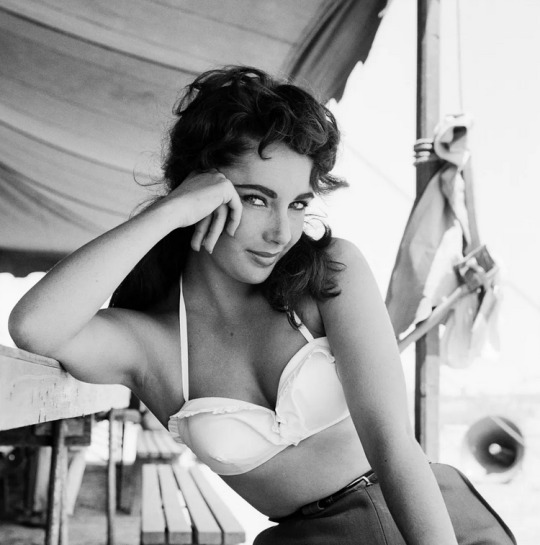

Propaganda
Elizabeth Taylor (Cleopatra, Who’s Afraid of Virginia Woolf, Cat on a Hot Tin Roof)—iconic actress with purple eyes and a double row of eyelashes, the real ebony dementia ravenway of old hollywood. known for her stunning tastes when it comes to jewelry and her incredible, incredible advocacy during the AIDS crisis.
Piper Laurie (The Mississippi Gambler)— Because she's so (rightfully) well-recognised for her later-life career, I don't think enough people (in the general tumblr age bracket) know about Piper Laurie's earlier years as a certified and oscar-nominated Hot Vintage Movie Woman!
This is round 1 of the tournament. All other polls in this bracket can be found here. Please reblog with further support of your beloved hot sexy vintage woman.
{additional propaganda submitted under the cut]
Piper Laurie:


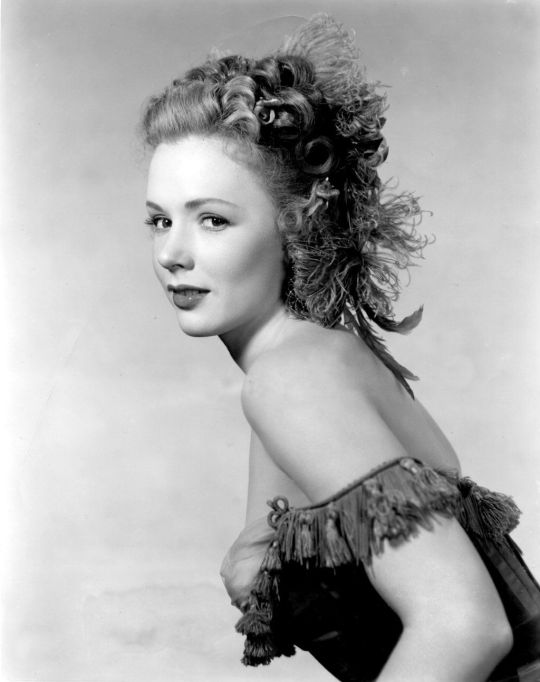
Elizabeth Taylor:

I've been trying to steer clear of the absurdly-big names, but damnit, those violet eyes got me. The *talent*, the *presence*, the string of marriages and (temporally out-of-bounds) work in combating AIDS and pioneering in the concept of the celebrity fragrance line.
Not only did she have gorgeous violet eyes and lashes for days and one of the hottest voices ever, she was also a big supporter of the gay community
Child actress turned starlet, Liz dominated films as one of the greatest screen legends of classic hollywood. If your protagonist has violet eyes, they're imitating hers.

A Legend. She was serving milf rage in Whos Afraid Of Virginia Woolf. A Star in every sense of the word.
She was renowned for the beauty of her eyes; they were a dark blue but could look violet in certain lighting, something that photographers would actually touch up to look even more so in pictures. But even more striking was a genetic mutation that gave her a double row of eyelashes. She was also famed for her string of husbands -- 8 marriages to 7 men. Two-time hubby Richard Burton once said she was “a wildly exciting love-mistress… beautiful beyond the dreams of pornography.”
Her EYES. Early and loud support for gay rights and AIDS victims. Married a bunch of hot dudes, Burton twice!
just look at her. she's gorgeous. there's a video somewhere of her applying her eyeliner in the mirror and I think about it all the time

THE Hollywood actress of all time. Not only was she known for her long dark locks and blue-violet eyes, she also had one of the wildest life stories ever….. She’s Carrie Fisher’s stepmother because her father Eddie Fisher cheated on Debbie Reynolds with Liz. She was knighted as a dame of England. She was married to seven different men, one of them twice. She was also very kindhearted and did a lot of charity activism.

Asides from being an iconic actor, she did a lot of philanthropy and co founded the American Foundation for AIDS research. She’s sometimes considered one of the last great stars of old hollywood

172 notes
·
View notes
Text

Sans Souci Court, Las Vegas – c. 1939
Timeline: El Desierto / Sans Souci / Castaways / The Mirage
One of the earliest lodgings on US Hwy 91, the future Las Vegas Strip, was El Desierto, a service station, cabins, and cafe, complete with slot machines, opened in ‘29. It was also known as States auto court, and Mountain View auto court in the 30s. We have no photos of the earlier businesses before it became Sans Souci in 1939.
Sans Souci auto court and trailer park remained though the mid 50s. It was razed, and in '55 completely rebuilt into a modern 2-level hotel with pool. Owners George Mitzell and Harold Hinds held a grand opening for the Sans Souci Hotel on 8/21/55. The casino and showroom were added in ‘57.
Ben Jaffe, founder of the Tropicana and partner in The Castaways hotel of Sunny Isles FL, bought the hotel-casino from a bankruptcy auction in '62. He remodeled, expanded, and reopened as Castaways.
Castaways was sold to Golden Nugget Inc. in ‘87 and demolished to make way for The Mirage. The exact location of El Desierto and Sans Souci was the north gate of The Mirage.
'29: Originally opened as El Desierto, auto court and cafe with slot machines. Mr & Mrs. C.W. Huck, and A. Huck, owners. (LVA 3/26/29 p6; LVA 9/19/29 p1)
'31: Owner R.C. Conklin, 12 more cabins built (RJ 10/29/31)
'32: becomes Dolly’s Garden, or Dolly’s El Desierto, and moved “200 feet north of our former location” (RJ 7/20/32)
'33: becomes States Auto Camp (RJ 6/6/33 p4)
'35: Becomes Mountain View. Florence Thomas, prop. (RJ 8/7/35)
'39: becomes Sans Souci. Mr. and Mrs. W. R. Miller, and Mr. and Mrs. Freeman H. Smith, owners. (RJ 5/9/39).
'46: H. Cleveland Schultz buys Sans Souci. The court is described as 16 units and managers quarters (RJ 9/5/46 p5).
'55: Aug. 21, New 100-room, 2-level Sans Souci Hotel opened in place for the former auto court. Sans Souci Inc, G. Mitzel, H. Miller, owners. John C. Lindsay AIA, architect. (RJ 8/22/55, RJ 8/28/55).
'57: Oct., Casino and showroom opening, with signs by Western Neon (RJ 10/23/57).
'62: Sans Souci closed, bankrupt in Oct. Sold to Ben Jaffe in Nov. (RJ 11/18/62)
'63: May-Aug., Construction of new hotel wings on the south and west sides of former Sans Souci.
'63: Sep. 1, Castaways opened. Owners are Ben Jaffe and Ike P. Larue Jr, “Mississippi oilman and a Las Vegas gambler” (NSJ 8/7/63, RJ 8/26/63). Signs by Bill Clarke, Ad-Art. First Ad-Art job in Las Vegas. Castaways includes St. Louis Jain Temple.
'65: Casino closed 12/31/64, reopened mid 65 under new owners (NSJ 8/6/65). Sign updated (raised).
'67: Howard Hughes buys Castways (RJ 9/23/67)
'81: Neon facade installed at Castaways
'87: Castaways sold by Hughes Co to Golden Nugget Inc. The hotel-casino is demolished, replaced with The Mirage.


Sans Souci auto court postcards circa 1940s


Sans Souci Hotel c. '55
29 notes
·
View notes
Text

Tyrone Power in Rudolph Maté‘s THE MISSISSIPPI GAMBLER (1953)
32 notes
·
View notes
Text

wyatt abrams, a playlist
go down gamblin’ | blood sweat & tears // devil's right hand | johnny cash //I am a man of constant sorrow | the soggy bottom boys // ramblin' man | larkin poe //ace of spades | lisa leblanc //the gambler | kenny rogers //blood sweat & murder | scott h. biram // stuck in the middle with you | steelers wheel // conman coming | monica heldal // don't take your guns to town | jonny cash // have you ever seen the rain | willie & paula nelson // mississippi | the secret sisters // my poor son | the roe family singers // hard times | ethel cain // song of sorrow | elle king // waiting around to die | townes van zandt // redemption day | johnny cash // the truth won't set us free | sara watkins // god's gonna cut you down | johnny cash // where did you sleep last night | hellbound glory // cocaine blues | johnny cash // old number seven | the devil makes three // tears of gold | larkin poe // the hand that feeds | the crane wives // highwaymen | the highwaymen // mammas don't let your babies grow up to be cowboys | waylon jennings + willie nelson // midnight rider | allman brothers band // hurt | johnny cash
41 notes
·
View notes
Text
"John might as well have worn a sandwich board announcing the end of the world, so clearly was he dressed for attention. His jeans were the tightest anywhere – he only got out of Mimi's house by wearing a pair of flannels over them, taking them off on his way to college and shoving them in a shoulder bag – and he had a long, frocked black jacket, like a Mississippi gambler. He wore it all with a swagger, with self-assurance camouflaging all his insecurities. Stuart, who adopted his own individual style, dressed for himself – who but a few intimates would see his red underpants? Stuart was impressed by him, and even more so when he heard about John's group, the Quarrymen, named after the Quarry Bank High School that John and the original band members had attended. But the band was not the main attraction. John was overtly anarchic, whereas Stuart's anarchy was expressed by pushing artistic boundaries, painting large works when he should have been doing small-scale material. Stuart's rebellion was mostly acceptable, whereas John's sometimes wasn't. We are all shocked and appalled by wild behaviour, but we are also excited and fascinated by it. John was also very, very funny. Stuart loved that and could keep up with it. There was a lot of banter between them, each of them always trying to get the better line. Once, round at our house, John said to me, 'You know, your brother's a little genius.' I got back quickly, 'He thinks you're a big genius.' His smile embraced me. John was also very dangerous, and there is a kind of excitement about that too. That unpredictability. In their banter John could be very cruel but, like a strong parent, Stuart contained that, which also made John feel safe."
ㅡ From the book "The Beatles' Shadow" by Pauline Sutcliffe.
124 notes
·
View notes
Text
Mississippi Grind

Summary: Estate agent and unlucky gambler Gerry (Ben Mendelsohn) meets significantly younger and much luckier gambler Curtis (Ryan Reynolds) and go on something of an odyssey together.
Incredibly stressful examination on addiction and the difficulty of quitting with two compelling central performances. Ambiguous but hopeful ending, too.
Rating: 4.25/5
Photo credit: Roger Ebert
#mississippi grind#2015#anna boden#ryan fleck#dramedy#Ben Mendelsohn#Ryan Reynolds#Sienna Miller#Lio Tipton#Alfre Woodard#4.25#film reviews#film review#twenty-words-or-less#twol
7 notes
·
View notes
Text
She stands on the banks of the mighty mississippi alone in the pale moonlight waiting for a man a riverboat gambler said that hed return tonight they used to waltz on the banks of the mighty mississippi loving the whole night through til the riverboat gambler went off to make a killing and bring it on back to you evangeline, evangeline curses the soul of the mississippi queen that pulled her man away bayou sam, from the south louisiana had gambling in his veins evangeline, from the maritimes was slowly going insane






21 notes
·
View notes
Text
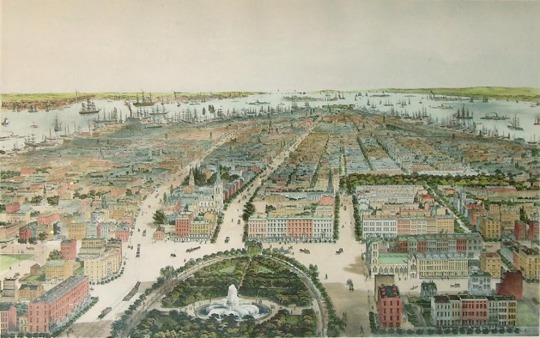
In the years before the Civil War, New York police officers sold free Black Americans into enslavement. Public Domain/Courtesy of Wikicommons
Clashes between protestors and the police from Portland to Atlanta to Kenosha are recent flashpoints in the long history of policing in America. While the police today emerged from a hodge-podge of national and international iterations, one of the United States’ earliest and most storied forces, the New York City police, offers modern Americans a lesson in the intractability of problems between the black community and the officers sworn to uphold the law.
That long history is both bleak and demoralizing. But this past also reminds us that real change will only happen by learning from the collective American experience, one in which those who supported systems of oppression were met by others who bravely battled against them.
As the nation’s most populous city for most of its history, New York has been uniquely affected by this dynamic. In the decades before the Civil War, when Gotham’s police force was becoming regularized and professionalized, Manhattan routinely erupted in riotous violence over the very meaning of equality.
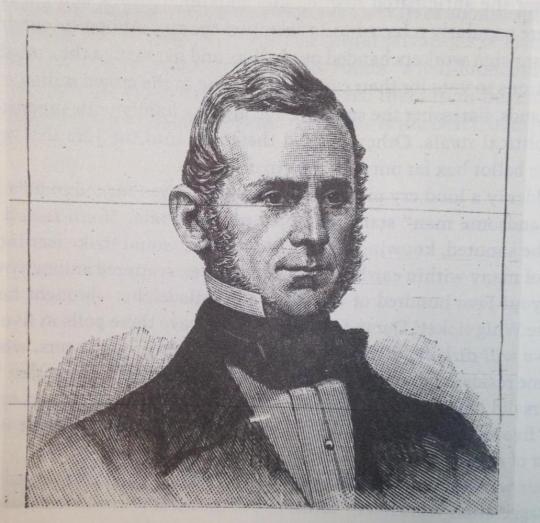
No one individual embodied the brawling roughness of New York policing like Captain Isiah Rynders of the U.S. Marshals.
Born in 1804 in the Hudson River town of Waterford, New York, Rynders was a gambler on Mississippi River steamboats. He reportedly killed a man after a card game and fled to his home state around 1837.
Known for his thunderous voice, a powerful memory, and a penchant for histrionics, Rynders made an immediate impact on New York City.
Black New Yorkers became his main target, and for decades, he patrolled the streets looking for runaways who had escaped enslavement in the South and who, against tremendous odds, had found freedom in Manhattan.
The Constitution’s Fugitive Slave Clause required northern free cities like New York to return the self-emancipated to their southern enslavers, and the NYPD and officers like Rynders were only too willing to comply, conveniently folding their hatred of black people into their reverence for the nation’s founding document. Armed with the founders’ compromise over slavery, Rynders and his fellow officers,
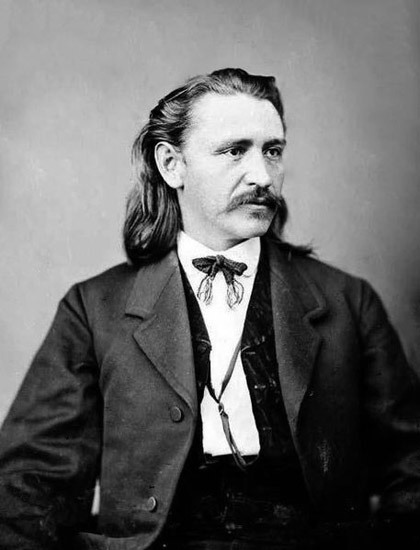
men like Tobias Boudinot and
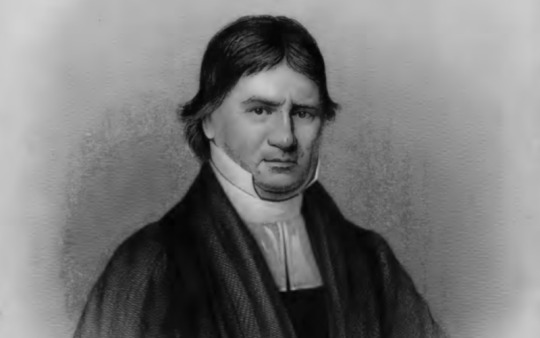
Daniel D. Nash,
terrorized New York’s black community from the 1830s up through the Civil War.
And, even worse, it often mattered little whether a black person was born free in New York or had in fact escaped bondage; the police, reinforced by judges like the notorious city recorder Richard Riker, sent the accused to southern plantations with little concern and often even less evidence.
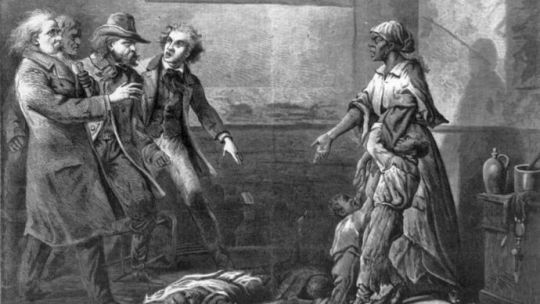
Thanks to Rynders, Boudinot, and Nash, the New York police department had become an extension of the powerful reach of southern slavery, and each month—and often each week in the summer months—brought news of another kidnapping or capture of a supposed runaway.
Black New Yorker John Thomas, for example, was claimed by an enslaver from Louisville, Kentucky. Thomas purportedly fled slavery along the Ohio River, then travelled through Canada, and ultimately found a job as a porter in a Manhattan hotel.
In late 1860, Thomas was arrested as a fugitive by the Manhattan police. While in prison, Thomas hastily drafted a note, dropped it out his cell window, and asked a passing boy to give the note to his employer, who submitted a writ of habeas corpus.
Unfortunately, the marshal on duty was none other than Rynders, who produced a different black man in response to the writ, and the judge declared the writ satisfied. In the meantime, Thomas’ employer and friends learned, too late, that one of Rynders’ deputies had taken the real John Thomas to Richmond, where he would be transported to Kentucky, lost in the darkness of American slavery, like untold numbers of other kidnapping victims.
Fortunately, New York’s black community was not without heroic defenders like David Ruggles, the tireless activist and journalist. Ruggles led the city’s antislavery community while the likes of Rynders, Riker, Boudinot and Nash, a group so wicked that Ruggles had labeled them “the kidnapping club,” patrolled the streets and docks in search of their next prey.
Joined by activists like Horace Dresser, Arthur Tappan, Charles B. Ray and other antislavery protestors, Ruggles fought relentlessly against those officers and marshals who threatened black liberty.
Just as modern protestors decry the role of the police in the quest for order, black and white activists in pre-Civil War New York claimed that the force was little more than a vigilante expression of the worst tendencies of white residents.
A more professionalized police force, however, did not mean one more suited to the protection of black civil rights. On the contrary, in the early 1800s, the police proved sadly and persistently indifferent to the black lives they were supposed to protect.
By modern standards, the early NYPD was a ragtag band of barely organized and only partially trained officers. The daytime police remained inadequate to deal with the robberies, violence, prostitution, gambling and other crimes of a city approaching 300,000 people in the 1830s.
Only 16 constables, elected by citizens of each ward, along with about 60 marshals appointed by the mayor, patrolled the city. Only constables and marshals had the power to arrest under a magistrate’s orders. Armed with warrants issued by Riker, marshals like Rynders could terrorize Gotham’s black residents, who came to fear the police presence in their neighborhoods.
Part of the fear emanated from the fact that Rynders’ confederates Boudinot and Nash did not wear uniforms or carry any kind of badge signifying their authority.
The familiar dark blue uniforms of the NYPD were not instituted until the 1850s, so African Americans harassed or arrested by the police could not even be sure that they were being accosted by legal authorities.
Equally problematic was the fact that neither Nash nor Boudinot earned regular salaries on which they could depend; their ability to support themselves and their families came from fees set by state law, which virtually required officials to arrest as many people as possible.
The situation almost guaranteed corruption, and tied the financial interests of the New York police force to the financial interests of southern slaveowners. Not that they needed any push to over-police the black community, but patrollers like Nash and Boudinot had every incentive to use their blanket writ to arrest as many accused fugitive slaves as they possibly could. In fact, their financial well-being depended on it.
Boudinot and Nash operated almost like independent agents in a police force that was itself in disarray, an institutional chaos that only rendered Black lives even more vulnerable. Fernando Wood, elected mayor in 1854, controlled the police department and relied heavily on Irish immigrants to man the force.

But by the 1850s, anti-Irish politicians were trying to establish a new police force, soon to be called the Metropolitans, that would replace Wood’s Municipals. A clash erupted in 1857 when Wood refused to back down, and for months, the city actually had two competing police departments who battled each other as much as they combatted crime.
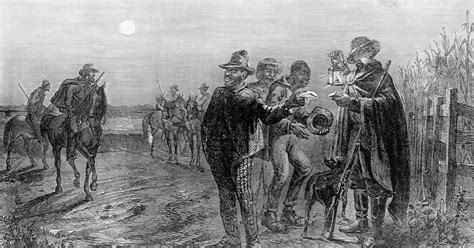
Both Wood’s Municipals and the state’s Metropolitans were guilty of malfeasance and dereliction of duty.
In fact, the Municipals, led by police chief George Matsell, had been called “slave catchers” by the city’s black community and its allies in the Republican press.
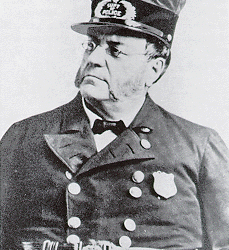
George Matsell, a member of the NYPD since 1840, himself was suspected of corruption, and rumors spread that he extorted money from criminals, seized stolen property for his own use, and skimmed the profits of illegal activities.
By the time the Municipals and Metropolitans vied for control of the New York police, Matsell had managed to build a sprawling summer mansion within a vast vineyard in Iowa, where local landmarks still bear his name. New York politician Mike Walsh labeled the heavy-set Matsell a “walking mass of moral and physical putrefaction.”
The crisis between the Municipals and the Metropolitans was only resolved when Wood and the Municipals finally backed down and the Metropolitans emerged as the city’s permanent and only official police force. Yet, the new police force proved no more respectful of black lives.
Boudinot became a captain in one of the city’s main wards and Rynders became a Democratic elder statesman during and after the war. In fact, New York City, always ready to defend the cotton trade with the South, voted against Lincoln in 1860 and harbored racial conservatives like Wood during the war and after. Embodied by newspapers like The New York Weekly Caucasian, one of the nation’s most prominent promulgators of white supremacist ideology, the city remained an unfriendly place for African Americans.
One hundred and fifty years later, policing has changed a great deal, particularly in its militarization and organization, but the tensions between the nation’s black communities and the police are still very much evident.
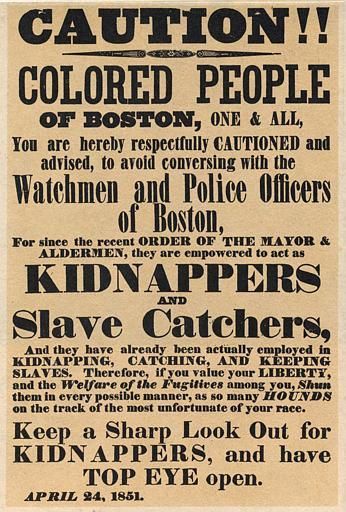
Black Americans have been fully aware of this history for generations because they have been the objects of so much of the violent quest for law and order. Although many people might assume that Riker’s Island was named after the city recorder, it appears that the name originates less from an individual and more from Manhattan’s general Dutch heritage. But though their origins may be different, both the prison and the city recorder share a similar past of neglecting the plight and suffering the New York’s most vulnerable residents.
Now, with some white Americans learning the fraught history of policing for the first time, have they come to realize that the last moments and utterances of Eric Garner, George Floyd, Breonna Taylor and untold others are but modern expressions of a deep and deadly struggle that stretches back to America’s earliest beginnings.
#The So-Called ‘Kidnapping Club’ Featured Cops Selling Free Black New Yorkers Into Slavery#New York#slavery#Freedmen#Kidnapping Freedmen#New York PD Slave Catchers#paddy rollers#police are slave catchers#nypd#fuck the police
12 notes
·
View notes
Text
Soundtrack of Chance: How Casinos Shaped Musical Genres and Culture
Music and casinos have a relationship deeper and more complex than most people realize. Far more than just background noise, casinos have been unexpected incubators of musical innovation, launching careers and transforming entire genres. The vip king team will tell you about it
The Jazz Age: Casino Stages as Musical Laboratories
In the early 20th century, casinos—particularly in places like New Orleans and Las Vegas—became crucial platforms for jazz musicians. These venues weren't just gambling halls; they were cultural melting pots where musical boundaries blurred and innovation thrived.
Legendary musicians like Louis Armstrong and Duke Ellington often found their first steady gigs in casino lounges. These spaces provided:
Consistent performance opportunities
Diverse audiences
Financial stability for emerging artists
A platform to experiment with new sounds
Blues and the Casino Circuit
The blues found its voice in the smoky back rooms and casino stages of the Mississippi Delta. For many African American musicians in the mid-20th century, casino performances were one of the few reliable ways to make a living in the music industry.
Artists like B.B. King frequently performed in casino lounges, using these platforms to:
Develop their unique sound
Build a loyal fan base
Escape the harsh economic realities of the time
Create a space for cultural expression
Rock 'n' Roll's Unexpected Sanctuary
Surprisingly, casinos played a significant role in preserving rock 'n' roll during its transitional periods. When mainstream venues were hesitant, casino stages became refuge for:
Aging rock legends
Experimental musicians
Artists between major label contracts
Elvis Presley's later career, for instance, was significantly supported by Las Vegas casino residencies, transforming the concept of live music performance.
Electronic Music and Casino Nightlife
The rise of electronic dance music found unexpected allies in casino entertainment. Nightclubs within casino complexes became:
Testing grounds for new DJ techniques
Platforms for international music exchange
Spaces where electronic music could reach diverse audiences
Renowned DJs like Carl Cox and Paul Oakenfold frequently performed in casino venues, helping to mainstream electronic music.
The Economic Symbiosis
Casinos discovered that music was more than entertainment—it was a strategic asset. By hosting musicians, they:
Attracted diverse crowds
Created unique atmosphere
Differentiated themselves from competitors
Generated additional revenue streams
Cultural Cross-Pollination
Casino stages became unique spaces where:
Musical genres intersected
Cultural boundaries dissolved
Experimental sounds found acceptance
Artists could reinvent themselves
Beyond Performance: Musical Inspiration
Many songs have been directly inspired by casino experiences. From Kenny Rogers' "The Gambler" to entire concept albums, the world of chance has been a rich metaphorical landscape for musicians.
The Dark Side of the Stage
It wasn't all glamour. Casino performances often meant:
Grueling schedules
Potential exploitation
Navigating complex social dynamics
Fighting against racial and cultural barriers
A Living Legacy
Today, while the music industry has transformed, the impact of casinos on musical development remains profound. They were more than venues—they were cultural laboratories where musical magic was born.
Musical Insight: The most interesting sounds often emerge from unexpected places.
In the grand symphony of musical evolution, casinos played a far more significant role than most history books acknowledge.
1 note
·
View note
Text
This article was originally published by George Ford Smith at the Mises Institute.
But how do we know when irrational exuberance has unduly escalated asset values . . .? — Fed Chairman Alan Greenspan, “The Challenge of Central Banking in a Democratic Society,” December 5, 1996
John Law, the early eighteenth-century Scottish gambler and financier, thought the best way to revive an ailing economy was to remove the “great scarcity of money,” as he wrote in a 1705 monetary tract. A decade after its publication, he took his ideas to the Continent and sold them to Philippe d’Orleans, the regent in charge of France’s finances, who needed a scheme more sophisticated than his failed program of coin clipping and confiscation to save the nation from bankruptcy.
In 1716, Philippe set Law up as head of the Banque Générale, the country’s central bank, giving it and him monopoly control of the note issue. Having won the nation’s trust with declarations of allegiance to sound money principles—he had promised his banknotes would be “payable on sight” in unadulterated gold coin—Law proceeded to apply another element of his theory. Because a scarcity of money, he believed, was the root of France’s economic problems, and since banknotes backed purely by precious metals would be in short supply, he began issuing notes “backed” by the nation’s vast landholdings. Exactly how one would redeem banknotes for acreage he neglected to explain.
Very importantly, Law and Philippe also created a trading company called the Compaignie des Indes, a vaporous entity said to have monopoly trading rights in France’s Louisiana territory. Initially, shares in the company could only be purchased with government bonds still on the market, which had fallen to about one-fifth their value. To the public, the trading company and its investment strategy became known as the Mississippi System.
Philippe was very pleased with the results. People from all ranks were buying shares of the Compaignie des Indes. Share prices began to soar. People were trading and speculating with Law’s paper money, and France’s economy was coming alive. Philippe decided John Law was correct that a shortage of money was an economic evil. He was so pleased with the change in the economy he brought the government closer to the action. He renamed Law’s bank the Banque Royale and, by late 1719, it had cranked out enough new bills to inflate the money supply by a factor of sixteen, no doubt to avert the evil of a monetary shortage.
Will and Ariel Durant describe the madness Law had ignited:
The narrow, dirty Rue Quincampoix, where the System had its offices, was for two years the Wall Street of Paris. Buyers and sellers of all classes, duchesses and prostitutes, Parisians, provincials, foreigners, gathered there in numbers, and excitement mounted day by day. Some were trampled to death in the crush, or were run down by the carriages of the aristocracy. . . fortunes were made in a day. A banker made 100 million livres, a hotel waiter thirty million. Now for the first time men heard the word millionaire.
0 notes
Note
“What kind of major social influencers and world leaders do you suppose they'll evolve into? 🤔”. - I don’t know them nor do you. But, Oprah Winfrey was born up in rural Mississippi to a soldier and an unwed mother. She was raised by a strict and abusive grandmother. She is now worth billions and has done amazing things for humankind. She was a no one once. Nelson Mandela was from a small tribe in South Africa, lost his father at 9 and was raised by a tribe member. Familiar with the term apartheid? What about Nobel Oeace Prize? He was a no one once. CGE Mannerheim’s father was a gambler who abandoned his family to live with his mistress after running his family into bankruptcy. Mannerheims mother died when he was a young teen and he was sent to a cadet academy from which he was expelled. Guess you are familiar enough with your own country’s history to know his contributions… He was a no one once. Shall we talk about Christ… just a poor carpenter…. ANYONE can become ANYTHING ! You are simply jealous and resentful because you chose to be a nothing influencing nor leading anyone and are still a no one.
Ah yes, Mandela and social media leg-spreaders are fighting the same fight. ✊️
And btw DON'T EVEN TALK TO ME ABOUT MANNERHEIM UNLESS YOU DO SOME RESEARCH. 🤦🏼♀️
You wanna know where he was born and spent his childhood?

AT LOUHISAARI MANOR. 🙄
He and his siblings had a Swiss governess and went to private lyceums. He and his family were always at the top of the Finnish social hierarchy.
HE WAS NEVER IN HIS LIFE A "NO ONE". 🙄
0 notes
Text

Tyrone Power in Rudolph Maté’s THE MISSISSIPPI GAMBLER (1953)
48 notes
·
View notes
Text

On this day:
THE LAST WISH OF BARBARA GRAHAM
On June 3, 1955, Barbara Graham was executed in the gas chamber at San Quentin, convicted of taking part in the murder of Mabel Monahan. It was said that along with four men, she had gained entry to Monahan's house in search of a gambler's fortune that was hidden there. No fortune was found, and when they left, Monahan was dead; $10,000 worth of jewelery and $500 cash in the victim's purse remained untouched.
Graham swore her innocence up to the end and may have received a lighter sentence, a pardon, or a new trial but for a mistake she made while in prison. A fellow inmate offered to provide her with an alibi for $25,000. Graham agreed. The "inmate" was an undercover policewoman who had taped their conversation. When questioned about her indiscretion, tearful Graham replied, "Oh, have you ever been desperate? Do you know what it means not to know what to do?"
Knowing she was going to die, Graham swore that the men connected with her conviction would die prematurely also. Coincidentally, one of her accomplices had disappeared and was presumed murdered before the trial. Two were executed on the same day as she was. The man who had turned prosecution witness was killed on the Mississippi River when, in a fog, a Dutch freighter rammed the small craft he was riding on. Another man who was in on the plan and gave evidence, but backed out at the last minute, died when he drove into a road obstruction. The district attorney in charge of Graham's prosecution died unexpectedly from cancer, the warden of the San Quentin prison was struck dead by heart failure, and the judge who sentenced her died abruptly, also from cancer.
Text from: Almanac of the Infamous, the Incredible, and the Ignored by Juanita Rose Violins, published by Weiser Books, 2009
0 notes
Text
Your Loved Ones Never Leave You
Today, I put on an all Gaga playlist to listen to when I was in the shower. I always have music going when I shower. So, "You and I" ended and out of nowhere "Margaritaville" by Jimmy Buffett started playing and it was playing from THE MIDDLE OF THE SONG. This is special to me because in my dad's later years he was a Parrothead. He would listen to Margaritaville, Cheeseburger in Paradise, Pencil Thin Moustache, etc.
Now this kind of thing is not new for me. I get Interrupting Songs all the time...yet never from my dad. I have gotten Interrupting Songs from my Grannie (Coal Miner's Daughter, Walking After Midnight, Louisiana Woman, Mississippi Man), my Papaw (The Gambler), ad others. And sometimes I hear harmonies from them too! This is the first time I have gotten one from my dad and I have been smelling his home cooking all day. Homemade cornbread all afternoon.
I just thought that I would share because it's something new. It's special. It's meaningful and comforting. The loved ones we hold close, whether blood related or not, are always with us.
#loved ones#family#spiritual#pagan#witch#pagan witch#interrupting songs#spirituality#spiritual communication#spiritual community
1 note
·
View note